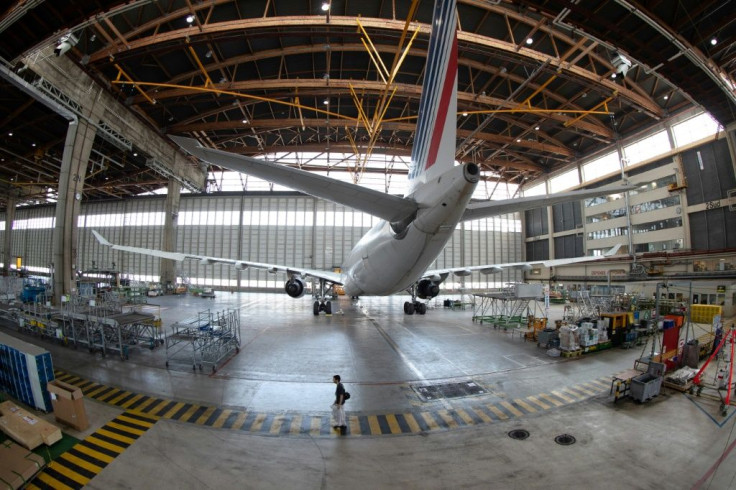US Holds Off On Extra Tariffs In EU Airbus Dispute
Washington said Wednesday it would hold off on its threat to impose higher tariffs on $7.5 billion worth of EU goods in its long-running dispute over subsidies to European aircraft maker Airbus.
Last year the World Trade Organization authorized the US to impose tariffs of up to 100 percent on $7.5 billion in European goods.
Washington then slapped 25 percent taxes on a number of EU products including whiskey, wine, cheese and olives. A 10 percent tariff on Airbus planes was increased to 15 percent in March.
The European Union last month said it had brought itself into compliance with WTO rulings and called for the tariffs to be lifted.
Washington said Wednesday the bloc had not done enough but signaled it was willing to seek a solution.
"The EU and member states have not taken the actions necessary to come into compliance with WTO decisions," US trade representative Robert Lighthizer said in a statement.
"The United States, however, is committed to obtaining a long-term resolution to this dispute.
"Accordingly, the United States will begin a new process with the EU in an effort to reach an agreement that will remedy the conduct that harmed the US aviation industry and workers and will ensure a level playing field for US companies."
In June it had threatened to levy tariffs on another $3.1 billion in EU goods as it has been authorized to do under a WTO ruling.
Washington made minor modifications to its list of goods on Wednesday but left the amount of products subject to tariffs at $7.5 billion, and rates were unchanged at 15 percent for aircraft and 25 percent for other products.

The European Commission gave a cautious welcome to "the US decision not to exacerbate the ongoing aircraft dispute" and said Trade Commissioner Phil Hogan would continue to work with Lighthizer to find a solution.
"The current economic slowdown, specifically its impact on the air travel and aircraft sectors, provide a particular urgency to resolving this dispute," it tweeted.
But Airbus said it "profoundly regrets" the US decision to maintain tariffs on its planes "despite Europe's recent actions to achieve full compliance."
"Airbus trusts that Europe will respond appropriately to defend its interests and the interests of all the European companies and sectors, including Airbus, targeted by these tariffs."
Britain's Trade Secretary Liz Truss welcomed the US decision not to impose tariffs on gin and blended whiskey but said it did not address the 25 percent levies on single malt Scotch.
"These tariffs damage industry and livelihoods on both sides of the Atlantic and are in nobody's interests. I am therefore stepping up talks with the US to remove them as soon as possible," she said in a statement.
The Scottish Whisky Association said it was "deeply disappointing" that the US had not lifted the tax.
"The tariff is inflicting huge damage on the Scotch whiskey sector, with exports to the US down 30 percent since the tariff came into effect and the industry grappling with losses now totaling around ?300 million ($390 million)," chief executive Karen Betts said.
The epic legal battle between Airbus and Boeing at the WTO began in 2004 when Washington accused Britain, France, Germany and Spain of providing illegal subsidies and grants to support the production of a range of Airbus products.
Airbus said in late July it had reached agreement with the French and Spanish governments that raised the interest rates on funds provided to help develop its long-haul A350 jet to levels the WTO considers appropriate.
The European Commission had said this removed any grounds for the US to maintain tariffs imposed on EU exports under WTO rulings as well as making a strong case for a rapid settlement of the dispute.
© Copyright AFP 2024. All rights reserved.




















